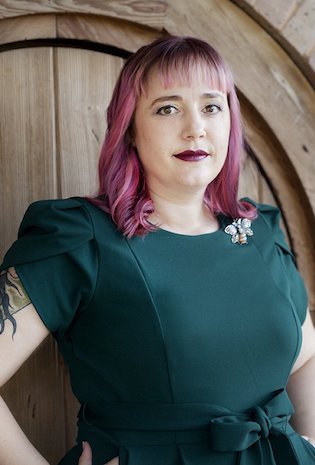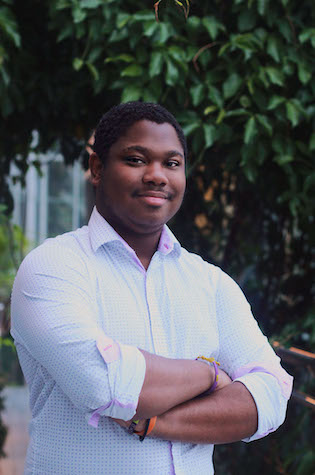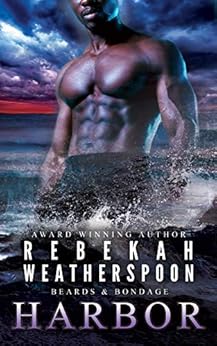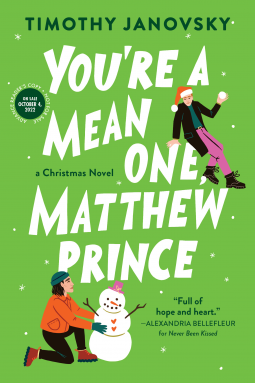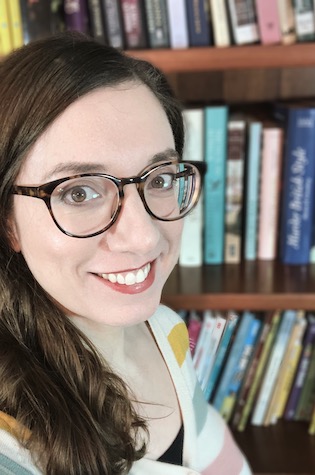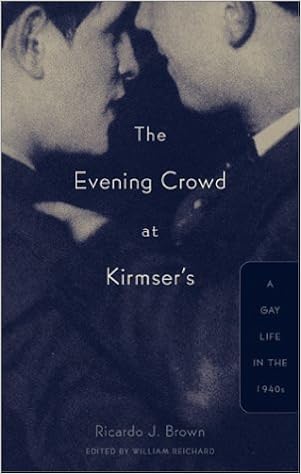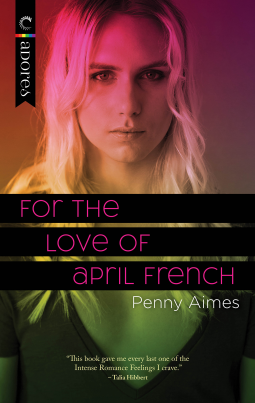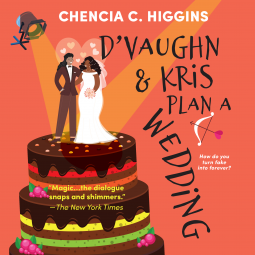
There’s something truly special about the joy found in queer romances, where characters from the LGBTQ+ community are loved and celebrated for who they are. 2022 is packed with incredible queer romances, and here I’ve asked the authors of four of them to share what it means to them to write these stories, where they see the queer romance genre going next, and (of course) book recommendations.
Helena Greer, author of Season of Love
Helena Greer is making her debut with Season of Love, a holiday romance where a Christmas tree farm manager must team up with the farm’s new owner to save it from developers.
Your debut romance, Season of Love, is a queer Jewish take on classic Hallmark tropes! What inspired you to not only write a romance but a holiday romance? And if this book were to become a Hallmark movie, who would you cast in the lead roles?
I always wanted to be a writer, but after getting a bachelor’s in creative writing, I quit writing completely for 12 years. I think I was having trouble finding joy in the idea of publishing poetry, memoir, or literary fiction, which were the disciplines I’d been trained in. What I loved reading was romance novels, but it didn’t occur to me that I should try writing them. In November of 2018, I was watching my annual glut of Hallmark movies and was, once again, frustrated by the lack of queer representation. I tweeted an off-the-cuff plot idea about a woman who inherits a Christmas tree farm and falls for the butch tree farmer, and I realized—I could write this. I’m a writer, I could make this book exist! It was the first time in over a decade that I felt that spark, the drive to finish a project. I love holiday romances because there’s a belief in the possibility of magic during the holidays, which we also find in romance novels, the suspension of cynicism and acceptance that sometimes life is extraordinary. I love the earnestness of holiday romance, and I loved the queer holiday romances that already existed. I feel so lucky to get to join the group of authors making queer holiday magic.
If Season of Love were a Hallmark movie, I would probably cast Ilana Glazer as Miriam. As for Noelle, I would love to have a newcomer, since I think there’s always room for more fat butch actresses.
What is your favorite part of getting to tell stories that celebrate queer joy and love? What does telling these stories mean to you?
I love all the complexities and facets of the queer experience, and I think having stories that honor the truth of the hardest parts, remember our losses, and aggravate for change are all critical to telling the whole story of all the ways people are queer. I came out in 1997, the year that Matthew Shepard was murdered, when even with protease inhibitors AIDS still felt like a death sentence and everyone was in very fresh grief. Those aspects are real and true for me, but so far they haven’t been the stories I personally am driven to tell. For me, the brightest flame and truest kernel of my queer experience, which has been consistent for the 25 years since I came out, was that of joy and blessing. I feel so grateful that I get to be queer, that I’m given the freedom and opportunity to ask myself those questions about who I am, to find answers off the beaten path, to create answers for myself. I love the queer community (even when I want it to interrogate its fatphobia, biphobia, racism…) and I want to celebrate the fact that I’m a part of it. So I tell stories that allow that joy an outlet, but also I think (or at least hope) that refusing to be ashamed of my queerness is a small act of revolution. This thing that people would like to violently wipe out of existence is one of the best things about me, and I refuse to abdicate that.
How have you seen queer romance change since you first started writing, and where do you hope it goes next?
When I started writing Season of Love in 2018, we were seeing queer romance rep in traditionally published YA, but not as much in traditionally published adult romance (although there was an amazing variety happening in self-publishing and indie publishing). We are now seeing more adult romance, but I would love to see more BIPOC authors, and more trans authors, getting big releases with big money behind them.
What are some of the ways that writing queer romance impacts the romance narrative arc, compared to heterosexual romances? Do you think that the queerness of a novel influences its romantic beats?
I do think that writing a queer romance alters both the tropes and beats that we think of as making up a traditional heterosexual romance, for a wide variety of reasons. There’s no monolithic way to experience queer love, and I can only speak to my limited experience as a white, xennial, abled cis woman. For me, I find that often queer romance has happily ever after (HEAs) or happy for now (HFNs) endings that you might not find in a lot of traditionally published heterosexual romances–they might be more nuanced, allow more space for individual needs to be met in creative ways, or they might have more space for things like exes to be a part of the couple’s life. In my own writing often the way this manifests is that found family and the friend group take up more of the narrative than they might normally because that community is so crucial to the couple’s HEA.
What queer romances do you recommend readers pick up this month (and all year long!)?
Some desert island favorites of mine are Honey Girl by Morgan Rogers, Love & Other Disasters by Anita Kelly, and Last Night at the Telegraph Club by Malinda Lo.
Kosoko Jackson, author of I’m So (Not) Over You
Kosoko Jackson’s adult rom-com debut offers exes Kian and Hudson a second chance at love through the need for a fake date at a wedding.
I’m So (Not) Over You is your adult debut, and your next adult romance (A Dash of Salt and Pepper) will be released later this year. Having gotten your start in YA, what drew you to writing for an adult audience? And what’s the most surprising difference you found in how you approach writing an adult romance compared to YA?
I really wanted to explore some of the deeper emotions of romance. In YA, everything is so new and fresh for our characters. This is your first big romance! That’s hugely important. But it’s different from an adult romance, where you come into it with expectations and baggage and pain and sometimes trauma. I think there’s something so real and honest about that in adult romances, and seeing it through the lens of a Black queer person was really important for me to explore.
The biggest difference was probably characterization. “I like this guy because X, Y, or Z”, isn’t enough. Honestly, writing YA romance for me is a little easier because the feelings can be so big and exaggerated, and there’s room for that because, well, they are teens! Adults are more nuanced.
What is your favorite part of getting to tell stories that celebrate queer joy and love? What does telling these stories mean to you?
For me, the best part is putting queer men into situations that I’ve grown up and loved in stories that are typically for women. The Holiday, Breakfast at Tiffany’s, The Proposal—these are some classic rom coms that I’ve loved and always thought, what would it be like to be a queer man and experience these things? It’s a bit of wish fulfillment, but also a balm and therapy for myself and, I hope, for my readers to be able to see they are loved and deserve a happy ending too.
For me, telling these stories not only helps fight back against all the horrible anti-LGBTQ movements happening right now, but also reminds me that love and goodness wins. It’s a little cliché, I know, but sometimes, especially in the hustle and bustle of life, we forget that. And I like to just have a moment, a space, a time, where happiness is at the forefront. Rom-coms give me that.
How have you seen queer romance change since you first started writing, and where do you hope it goes next?
It’s been such a shift! I remember starting my writing career in 2014 and rarely seeing any queer books. In the industry catalog, which shows YA books acquired by publishers twice a week, we used to see one queer book acquired each month. Now, there’s barely a week that a queer book isn’t acquired. I think we have seen so much progress but I really want to see more intersectional works—more works by Black authors, nonbinary authors, and Native authors especially! I also want these books to get support. Here’s a secret: It isn’t the quality of a book alone that makes or breaks a book, it’s marketing. A publishing house can decide to make a bestseller. I want that for more queer authors.
What piece of queer representation in the media has had the biggest impact on your work?
Ambrose from Chilling Adventures of Sabrina. I love magical stories and oftentimes it’s the girls who have magical powers. To see Ambrose with his nuanced and deeply flawed history, his growth and his changing paths, to see his queerness and his power grow and expand? I love that character so much and hope to write one like that one day!
What queer romances do you recommend readers pick up this month (and all year long!)?
In the YA space, anything by Leah Johnson or Julian Winters. Adam Sass has a new YA romance coming out too, that I love so so much. As for adults, I’m a big fan of anything by Ashley Herring Blake, Jack Harbon, Rebekah Weatherspoon, and Timothy Janovsky!
Harbor by Rebekah Weatherspoon
Cat Sebastian, author of The Perfect Crimes of Marian Hayes
The Perfect Crimes of Marian Hayes, Cat Sebastian’s latest, transports readers to Georgian London to follow a con artist who helps a duchess on the run after shooting her husband.
The Perfect Crimes of Marian Hayes will be your 16th published work! How has the way you’ve approached writing romance changed or evolved over that time?
With my last few books, I feel like I’ve decided that my job is to write stories that make readers happy. I’m writing dessert. Maybe not coincidentally, this also means that I’m writing stories that make me happy.
How have you seen queer romance change since you first started writing, and where do you hope it goes next?
Queer romance—and especially lighter rom-com style queer romance—is so much more available now than it was in 2015. It’s wonderful—there’s such an abundance of books with such a variety of queer identities. I’m especially pleased with how many sapphic romances there are. It’s hard to believe that only two or three years ago I had to dig really deep to find more than a handful of f/f historical romances and now I can’t even keep up with new releases. I hope we keep seeing more variety in queer romance. There are some fantastic trans romances by trans authors and I’d love to see more get picked up by big publishers.
Is there a character or book you’ve written that you would like to give to your younger self, and why?
When I was writing The Lawrence Browne Affair, I heaped pretty much every mental health problem I’ve ever had onto the main character. Lawrence Browne has a slew of anxieties, including what amounts to an inability to leave his house. He wants friendship, but has basically ruled it out as impossible given his limitations. He’s pretty sure there’s something fundamentally wrong with him, and he lives in a world that’s set up so contrary to his needs that every day brings more proof that he’s somehow broken. The fact that he’s queer in a hostile world really does not help with this worldview. Somehow I managed to write that whole book without noticing what I was doing—repeatedly demonstrating to the main character that he was loveable and that everything was going to be okay. I definitely could have used that when I was younger and hadn’t come to terms with my brain stuff!
What is your favorite part of getting to tell stories that celebrate queer joy and love? What does telling these stories mean to you?
I recently read The Evening Crowd at Kirmser’s—a memoir about queer life in the Midwest in the 1940s. In the foreword, the author talks about how telling queer history is a balance between celebrating survival and acknowledging oppression. And I feel like that’s relevant in queer historical fiction too—stories of queer survival and joy can demonstrate that queer history isn’t this unbroken line of misery. There are people who really want us to believe that the concept of queer acceptance is this brand-new deviation from “normal” and that queer people only belong hidden away, isolated, and sad. We can tell stories showing how queer people made lives for themselves in the past, and that all kinds of people under the queer umbrella have always been here. But we can also acknowledge fighting or resisting oppression is a part of our stories of survival and joy.
What queer romances do you recommend readers pick up this month (and all year long!)?
I just read The Hate Project by Kris Ripper and it’s 1) hilarious and 2) one of the most accurate depictions of anxiety and depression I’ve ever read. I just went and bought the other two books in the series to read immediately.
Meryl Wilsner, author of Mistakes Were Made
Meryl Wilsner’s Mistakes Were Made hits shelves in the fall and explores what happens when a college senior accidentally hooks up with her best friend’s mom.
Mistakes Were Made hits shelves this October and is your second novel. What’s something that you learned while writing Something to Talk About that helped to shape Mistakes Were Made?
With Something to Talk About, I was very nervous about how it was going to be received. I wanted everyone to like it because if they didn’t like my book that meant they didn’t like me! Everyone always tells you not to read your reviews, but like any baby debut author, I didn’t listen. When advanced copies were out and there were only about 30 Goodreads reviews, I read them all, back to back, in order. That was when I realized just how subjective reading is. What one person loved, the next person would hate. So I stopped reading reviews and (mostly) stopped caring what people thought of my work. I started writing for me. Some people will like my books and some people will hate them and some people couldn’t care less. The only thing I can control is that I love my work.
What is your favorite part of getting to tell stories that celebrate queer joy and love? What does telling these stories mean to you?
I feel like I’m supposed to get deep and meaningful and talk about how I write books I wish I had when I was younger and all that. It’s true, but honestly, the thing about writing queer romance is that it’s my favorite thing to do. Even if I’d never published a thing in my life, this is what I’d be doing. When I am taking a break from writing my next book about imaginary people falling in love, I daydream about other imaginary people falling in love. Yes, queer joy is revolutionary, and it’s an honor to get to tell these stories, but also it’s just fun. I don’t want to ignore how important these stories are but I don’t want to get bogged down in their importance, either. Cis het romances don’t have to be special or different or revolutionary to be worthwhile and enjoyable, and neither do queer romances. They’d be fun even if they weren’t revolutionary.
How have you seen queer romance change since you first started writing, and where do you hope it goes next?
It’s more publishing that has changed than queer romance itself. When my debut was published, it was Berkley’s first in print f/f romance. Obviously, there were plenty of people who came before me who paved the way, helping prove that there was an audience for queer romance. There have always been people here writing queer romance, but mainstream publishing is finally taking notice. That said, the books that get support are still too often by and about white, abled, cisgender folks. I hope as we move forward, the publishing industry and readers support stories involving the breadth of queer experiences.
Also, I would really like publishers to step up in the fight against banning books. It feels like we’re at war. We’re trying to provide stories where queer characters are heroes and the other side is trying to legislate queer folks out of existence. Publishers have the power to protect marginalized authors and their books, and they could and should do more.
What piece(s) of queer representation in the media has had the biggest impact on your work?
Honestly, until I read one of the books I rec’d below, Love & Other Disasters by Anita Kelly, I hadn’t realized it was possible to publish a mainstream romance with a nonbinary lead who uses they/them pronouns. I’m a nonbinary author, but it took me seeing that book in print to understand this as a possibility. It’s thanks to Anita that I have plans to write nonbinary main characters in future books. “Representation matters” always seemed more for younger people than adults, but it really freakin’ does.
What queer romances do you recommend readers pick up this month (and all year long!)?
I’m gonna give you details of three of my favorites and then a long list of other recommendations because I can’t narrow it down!
Love & Other Disasters by Anita Kelly might be my favorite romance of all time. The first openly nonbinary contestant of a reality TV cooking show falls for another contestant.
Delilah Green Doesn’t Care by Ashley Herring Blake is out now, and the follow-up, Astrid Parker Doesn’t Fail, comes out in November. If you’ve already read Delilah, you know it’s so good it’s hard to believe that I liked Astrid even more!
Next month, definitely pick up The Romance Recipe by Ruby Barrett. The owner of a restaurant and her head chef fall for each other while fighting to keep the restaurant afloat. It’s everything I want in a romance: sexy, swoony, and sapphic.
Other contemporary romances: For the Love of April French by Penny Aimes, D’Vaughn & Kris Plan a Wedding by Chencia C. Higgins, and I’m So (Not) Over You by Kosoko Jackson.
Queer romances for winter holidays: Season of Love by Helena Greer, In the Event of Love by Courtney Kae, and the YA romance How to Excavate a Heart by Jake Maia Arlow.
For fantasy romance lovers, check out The Calyx Charm by May Peterson.

